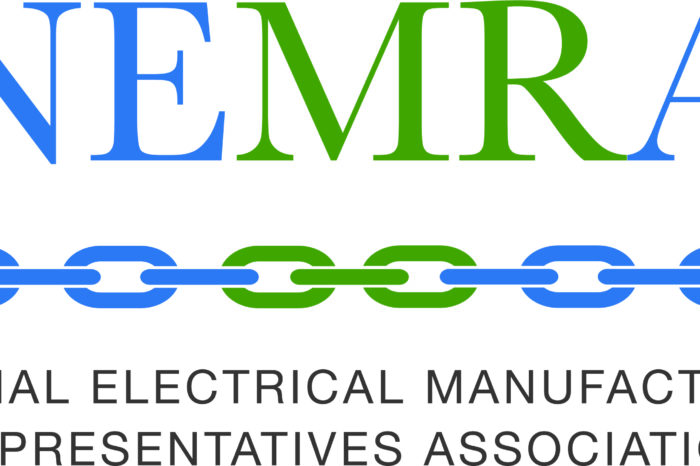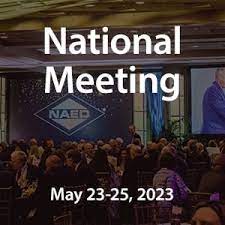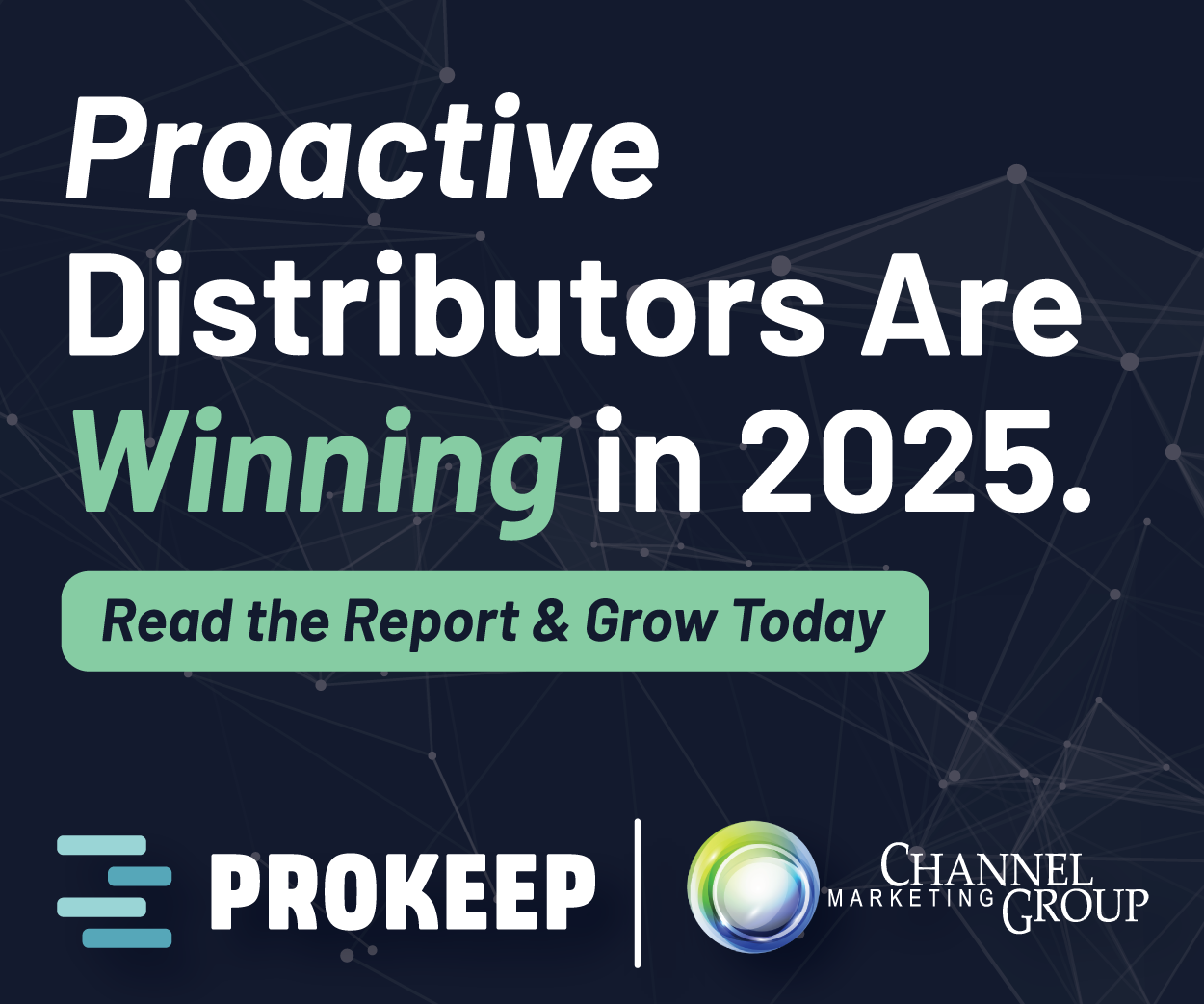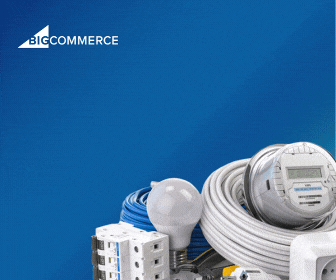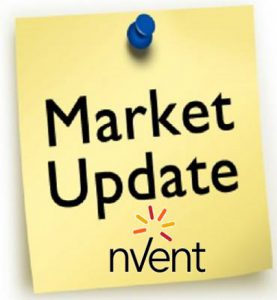Reps Thoughts on Platform Manufacturers
 The feedback on my last article regarding why manufacturers seem to be converting their sales force more to include representatives, and what they were looking for in choosing a representative received significant enough feedback to suggest an article discussing the effects on those agents representing platform manufacturers. Therefore, I interviewed numerous NEMRA principals who have picked up lines that previously had a direct salesforce.
The feedback on my last article regarding why manufacturers seem to be converting their sales force more to include representatives, and what they were looking for in choosing a representative received significant enough feedback to suggest an article discussing the effects on those agents representing platform manufacturers. Therefore, I interviewed numerous NEMRA principals who have picked up lines that previously had a direct salesforce.
I found the analysis more difficult than I had anticipated. This is mainly because the manufacturer’s expectations and procedures were so different.
Some operated as a cohesive unit with the intention of packaging products, while others were structured by individual products (or “divisions / operating companies”) with various decision makers in the sales process. There were manufacturers expressing the need for specification effort, and those that found greater importance in a rep’s ability to handle the inside sales issues including pricing, expediting, marketing and warehousing. Many obviously were looking for each service to be done by their representatives.
The reps found the greatest advantage of “platform manufacturers”, defined as multi-line manufacturers, is the expanding of the customer base both by distributor and user customer. It enables their salesforces to present their entire line card and become more of a consultant than having minimum opportunities without having dozens of manufacturers to represent. Think of this as maximizing the product offering while representing a minimal number of manufacturers. While beneficial, the reps also recognized that they were putting “many eggs in one basket.” I remember the President of a platform manufacturer once telling me that his company could represent upwards of 10% of a distributor’s SKU’s and that no one else could represent more. I told him each of his representatives could if they sold much of their offering to a distributor.” (Which then begs the question of representatives, “do you know what percent of each of your distributor’s COGS you represent?”)
Often platform manufacturers have a customer base that expands beyond electrical distributors. By representing a platform that sold into other markets, it has enabled some representatives to sell into other markets such as HVAC, industrial and electronic distribution customers, thereby growing their customer base. (And if this is an opportunity for a representative, make sure your contract doesn’t limit you to compensation solely from sales from electrical distributors.)
The representative I spoke to also say that the platform manufacturers are reinvesting their monies into new products, marketing, and research as well as purchasing other manufacturers whereas many smaller manufacturers have not done so or have been sold to either platforms or financial institutions in an effort to be sold. Some of the representatives expressed that going to with a platform manufacturer, while it has risks, was a better long-term play than concern with some of their smaller manufacturers who they felt would be sold (and some have been.)
One of the rep principals I spoke with is Scott Lessing. Scott is COO of Ewing Foley. I asked him “Why should a manufacturer, in your opinion, who is currently going direct consider using reps? Scott shared:
“Using a manufacturer’s representative has many advantages for a manufacturer. First, they move from a fixed cost of sales to a variable cost of sales model, allowing the manufacturer capital flexibility for product development, expansion, R&D, and efficiency to ultimately offer superior products at competitive prices to our mutual customers. Secondly, being on the “right” line card with an appropriate synergistic mix of lines sold by high-quality salespeople is a powerful concept. Multiple-line selling creates a synergistic effect with a broader yet better-defined customer base. This scales to comprehensive market coverage, deeper account penetration, and increased sales. Further, Single visits to customers or distributors using a “consultive” approach, covering multiple products, ultimately saves our customer’s time. Thirdly, beyond regulatory issues like insurance, taxation, payroll expenses, etc., manufacturers can also benefit from a rep management philosophy that includes long-term succession planning and a commitment to NEMRA’s Five Pillars (product expertise, demand generation, planning, marketing, and technology) to the Rep Of The Future.”
In other words, some of the move is based upon longer-term strategic alignment decisions … whether it is a platform play or representing multiple synergistic lines.
Issues Reps Shared
In talking to a number of representatives, the following issues were mentioned:
- The extremely high staff turnover that many are facing post COVID. As one rep stated, “it is one problem training when a manufacturer has new district managers or direct salespeople, but quite more concerning is the high turnover for key management and then the various changes created by management changes in strategies or goals.” These personnel changes create concern for agencies as corporate direction changes “regularly.”
- Platform manufacturers. These companies often represent more of income, plans and efforts for a rep. They can be time consuming, and profitable, however, they require strategic alignment and a level of mutual long-term commitment. It gets further complicated as the platform manufacturer makes future acquisitions and/or expands their product offering into new areas … and then competes with other suppliers on a reps linecard. Nearly every platform representative has faced decisions as to the manufacturers they had represented prior to their platform manufacturer purchasing or producing new products.
- The platform manufacturers that are in acquisition mode appear to be expecting, or in some cases demanding, the representative to resign from any competitors. This further limits the number of available representatives in a marketplace and could further dilute the income needed to assure mutual success for the representative and manufacturer.
- One rep commented, “the platform guys will need to accept “soft conflicts” as a result of consolidation to stay with the best reps in each territory.” Manufacturers will need to be honest with themselves of where their strengths are and what product offerings / lines complement them so that the rep can have the strongest offering in the marketplace. This will help the platform company capture more of the overall business. Some are already doing this, although by “closing their eye” versus being proactive and realistic.”
- Most manufacturers have gotten much better at planning and the larger companies have gotten very good at planning and reviewing expectations, especially at the beginning of the year. However, the importance cannot be over emphasized that, to be successful, the manufacturer and representative must truly understand expectations and carry out the plan. This is especially important as most representatives to the platform manufacturers have less control over pricing and the adding or subtracting of given distribution within the territory when each may directly affect sales.
What Reps Need From Their Manufacturers
The most important needs are training and support. Often reps do not have access to important information that can help drive business. Manufacturer firewalls may allow reps to view total numbers but not access to breakdowns by product lines. This is necessary for discussions with a rep’s staff, and with distributors, to promote adding support. Other examples include access to viewing inventory, production dates and even viable cross-references and drawings needed for specification purposes.
Manufacturers need to find a method of training the rep’s sales team comparable to how direct people are trained. As companies have transitioned from a direct sales force to a rep sales force, the training role, and the cost of it, has changed. It appears manufacturers, when they had direct salesforces, recognized their sales organization’s training needs (product, skills) and paid for the training … cost of training, cost to partake in the training and employee time. This changed as they went to a rep-driven salesforce. While factories find a way of paying for the direct person to be trained, some manufacturers expect their representatives to pay for all costs involved in the training process including transportation, food and lodging.
The rep is already paying for their associates to get trained since they are salaried. Now, as one rep put it, “Not all, but some, are now asking us, for training, to pay for flights, room and board, whereas in the past we only paid for transportation. We are their salesforce and are dedicating people to specify their products in the same manner.” Perhaps manufacturers should consider, as some manufacturers do now, that training should occur in the rep’s office. This isn’t the regional manager providing the training, but product management or engineers traveling to the territory. As rep agencies grow larger with more people and the responsibilities beyond sales expand, manufacturers may want to consider bringing in not only people to teach product, but systems and meet the people with whom they work. There is so very much to learn in a multi-line manufacturer, and as many have experienced in the past 4 years, virtual meetings are an excellent short-term assistance, but cannot replace the degree of training and relationship building as in person meetings.
How Are Representatives Changing Their Business Models
SPECIALIZATION! As product lines grow in efforts to offer better support, many leading reps have gone to both field and inside specialization. A number of rep firms are going to a team approach. A territory salesperson might be responsible for distribution, but the team in the area might consist of an industrial salesperson or a contractor salesperson responsible for those end-user customers through specification and service efforts. These end-user people may be shared across rep outside salesperson territories. Often inside people have specific backgrounds in lighting or gear or various products that take “show and tell” and either offer assistance in house or travel in the field to support the outside salespeople. It is frequently this specification effort that creates a salary + bonus ++ rather than commission base income and another reason why expenses for most representatives have risen over 33% in the past 3 years.
Most representatives want to be a solutions provider. This becomes one of the elements of the Rep of the Future as it helps in creating demand. Many have the assets in people and their knowledge to provide as much immediate assistance as possible. It explains why contractors I have recently interviewed when we’ve done distributor satisfaction research stated they go to representatives more often than ever before rather than to the distributor as they are seeking more technical information. They are asking for shipping information when a distributor is unable to get them an answer. It started with lighting representatives as the lighting agent often quoted the customer on jobs and was able to give them better levels if they quoted the lighting representative’s package of products on jobs. The agent could present a package They now will go to supply reps because they need faster responses and as much accuracy as possible. They often find the rep’s technical people more knowledgeable than the distributor personnel on specific product lines. The rep now utilizes their relationships in growing their share, and the contractors understand, as do distributors, that the rep cares. The rep is vested because their paycheck is completely dependent on sales to them. They get follow-up from specific reps including when shipments might not meet their scheduled dates. They can offer substitutions at times over products that might be more readily available because they know the products and may have deeper manufacturer insights. I heard frequently that when factories were called, distributors and contractors do not feel they were getting the same degree of assistance. Some of this undoubtedly goes back to the issue of personnel turnover.
Final Thoughts
As one of the few people left that participated in the original rep meetings that led to NEMRA’s founding, I remember being in small hotel rooms discussing what an association could mean to each agency. I was personally involved, as many others were then, and recall being threatened by manufacturers who felt the reps were pursuing a union to “gang up against manufacturers.” Our largest source of income at the time said, and I paraphrase, “if we continued moving toward an organization, we would need to consider losing them as a manufacturer.“
The reps that met at LaGuardia Airport believed in themselves as salespeople. I am most proud that those manufacturer representatives I interviewed for this article believed in their organizations rather than merely themselves. Their organizations had procedures in place and people that, unlike those charter members from years ago, only talked about creating.
As charter members, we had relationships and traveled extensively through our territories. Our inside associates were generally “trainees” with little experience in either sales or electrical knowledge. Today’s representatives have trained and experienced inside people that may have come from distribution or contractors. Today’s outside sales associates are often engineers, college graduates, and come from manufacturers who have a background able to assist customers in selecting products for their electrical needs. Procedures now in place assure better quality experiences with computer systems that should enable them to see products, present specifications and enable them to give the same degree of intelligence as the manufacturers presents to a distributor, contractor, utility, OEM, or engineer.
I wish many of those individuals that risked their company’s futures could see their own organizations today. I knew many of them personally and, given my age at the time, more than a few became mentors and friends. They would be so amazed that their foresight could have initiated what today is commonplace for so many of the NEMRA agencies and those running them. I am just as proud that those manufacturers who at one time may have considered the move of agencies to form a “union” now see NEMRA for what the founders dreamed. The fact is that representative companies would not be in existence without manufacturers that believed in them and their capabilities. This continues today even though there may be fewer rep agencies, fewer manufacturers and fewer distributors. We are all reinvesting in our companies to maintain growth and success but we’re also also dependent on each other. As a manufacturer related in my last article, “the only people that refuse to understand what reps have brought to us are those that have never worked with or visited a rep.”





